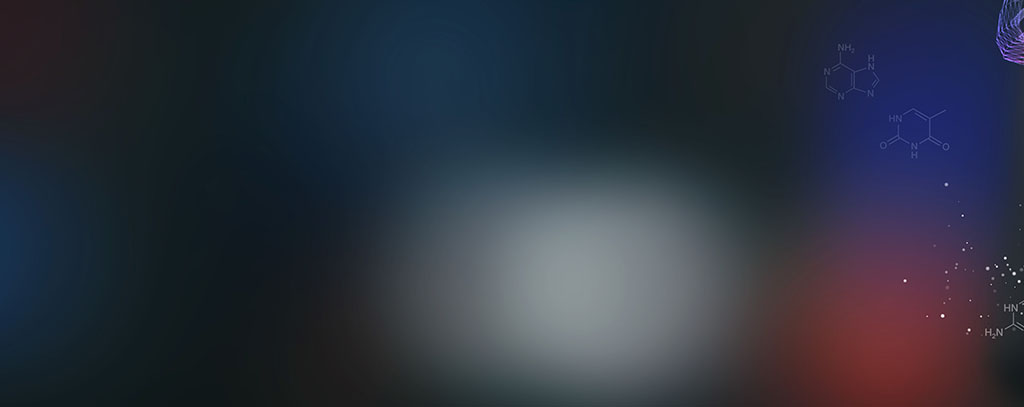


What Does a 15 Panel Drug Test Test For? Comprehensive Guide
July 15, 2023


Implementing a Drug-Free Workplace Policy: Steps and Strategies for Success
July 25, 2023As companies implement drug testing policies, understanding the significance of maintaining confidentiality is crucial for both legal compliance and fostering a positive work environment.
In this blog post, we will delve into the importance of confidentiality and privacy in workplace drug testing by discussing its benefits, potential legal implications if breached, and strategies to ensure these principles are upheld. By doing so, you can confidently conduct employee drug tests while respecting personal privacy rights.
Table of contents
- Understanding Confidentiality and Privacy in Drug Testing
- Benefits of Maintaining Confidentiality and Privacy in Workplace Drug Testing
- Legal Implications of Breaching Confidentiality and Privacy
- Strategies for Ensuring Confidentiality and Privacy
- The Key Points to Remember: Confidentiality and Privacy in Workplace Drug Testing
- FAQs in Relation to The Importance of Confidentiality and Privacy in Workplace Drug Testing
- Conclusion
Understanding Confidentiality and Privacy in Drug Testing
Let's kick things off with the basics.
Maintaining confidentiality and privacy during drug testing is essential for employers and employees to ensure a safe working environment.
Workplace drug testing helps ensure a safe working environment by identifying individuals who may be under the influence of drugs or alcohol while on the job. However, handling sensitive information such as test results requires care and discretion to protect everyone involved.
Why is Confidentiality Important?
The importance of confidentiality cannot be overstated when dealing with personal health information like drug test results. Failing to maintain confidentiality can lead to various negative consequences, including potential damage to an employee's reputation or career prospects if their private information becomes public knowledge.
The Role of Privacy in Drug Testing
Beyond just keeping test results confidential, privacy plays a significant role throughout the entire drug testing process - from sample collection through result reporting. Privacy laws, for example, emphasize that all aspects of workplace drug testing should respect an individual's right to privacy.
Collection Procedures & Employee Dignity
- Maintaining privacy during sample collection: Ensuring that employees are not subjected to unnecessary embarrassment or humiliation during the sample collection process is essential.
- Minimizing intrusion: Employers should take steps to minimize any potential invasion of privacy, such as using private restrooms or providing alternative testing methods when possible.
Protecting Test Results & Employee Information
- Limited access to results: Only authorized personnel should have access to drug test results and related information, ensuring that employees' sensitive data remains protected from unauthorized disclosure.
- Safeguarding records: Employers must store all drug testing records securely and in compliance with applicable laws and regulations, further safeguarding employee privacy.
In a nutshell, confidentiality and privacy are vital components of workplace drug testing - protecting both employers and employees while promoting a safe working environment for everyone involved. Stay tuned for further information regarding this topic.
Benefits of Maintaining Confidentiality and Privacy in Workplace Drug Testing
Let's dive right in.
Maintaining confidentiality and privacy during workplace drug testing is not just a legal obligation, but it also brings numerous benefits to your company.
Curious about what these advantages are?
Well, let me break them down for you:
Benefit #1: Fostering Trust. By keeping drug test results confidential, employees feel respected and valued by their employer. This fosters trust within the organization.
Benefit #2: Reducing Stigma. Protecting employee privacy helps reduce the stigma associated with drug usage issues. This encourages employees to seek help if needed without fear of judgment or discrimination.
Benefit #3:: Avoiding Gossip & Rumors. Ensuring confidentiality prevents unnecessary gossip or rumors from spreading throughout the workplace that could damage an employee's reputation or career prospects.
Benefit #4:Increase Employee Morale & Productivity. A private and respectful approach to drug testing can lead to higher morale among employees, resulting in increased productivity levels overall.
Legal Implications: Another Reason To Keep It Private.
With all these benefits and potential risks on the line, maintaining confidentiality and privacy in workplace drug testing is essential for any responsible employer.
Legal Implications of Breaching Confidentiality and Privacy
Let's get serious for a moment.
Not only is maintaining confidentiality and privacy in workplace drug testing important from an ethical standpoint, but it also carries legal implications if breached.
Don't worry, we've got you covered with all the info necessary to protect employee drug test information and avoid any potential legal repercussions.
Potential Legal Consequences
If your company fails to protect employee drug test information, there could be some major repercussions ahead.
The Equal Employment Opportunity Commission (EEOC), for example, enforces federal laws that prohibit discrimination based on disability or perceived disability - which includes substance abuse disorders under certain circumstances.
Breaching confidentiality can lead to lawsuits claiming invasion of privacy or even defamation if false positives are shared publicly without proper investigation first.
State-Specific Laws
Beyond federal regulations, many states have their own specific laws regarding workplace drug testing policies and procedures - including requirements related to confidentiality and privacy protection measures.
- California: Labor Code Section 1025-1070
- New York: Labor Law Section 201-d
- Florida: Workers' Compensation Law Section 440.102
Familiarize yourself with the laws in your state, such as New York's Labor Law Section 201-d and Florida's Workers' Compensation Law Section 440.102, to ensure compliance and avoid potential legal issues before addressing HIPAA - the Health Insurance Portability and Accountability Act of 1996.
HIPAA Compliance
Last but not least, let's talk about HIPAA - the Health Insurance Portability and Accountability Act of 1996.
This federal law sets standards for protecting sensitive patient information, including drug test results when conducted by a healthcare provider or medical review officer (MRO).
To stay on the right side of HIPAA regulations, it's crucial that your company has proper safeguards in place for handling employee drug testing data securely and confidentially.
Now that you're aware of some key legal implications surrounding confidentiality breaches in workplace drug testing, make sure you take all necessary precautions to protect both your employees' privacy rights and your company from potential liabilities.
Strategies for Ensuring Confidentiality and Privacy
Let's dive into some practical strategies to safeguard confidentiality and privacy during workplace drug testing. Follow these steps, and you'll be well on your way to creating a secure environment for both employees and employers.
Step #1: Establish a written policy that outlines the company's commitment to maintaining confidentiality in drug testing procedures. This should include guidelines on how test results will be stored, accessed, shared, or disclosed only with authorized personnel.
Step #2: Train all involved staff members on the importance of protecting employee privacy throughout the entire process - from sample collection to result reporting. This can help prevent unintentional breaches due to lack of awareness or understanding.
Step #3: Select a reputable drug testing supplies provider, such as Halux Diagnostic, that prioritizes security measures in their products and services (e.g., tamper-evident specimen containers).
It's important to remember that employee drug testing involves sensitive information, including confidential medical records and drug test results. Thus, adhering to privacy regulations is essential in order to safeguard the private details and medical information of personnel.
Therefore, it is essential for employers to understand the potential legal consequences of administering drug tests and disclosing test results. For example, if an employee tests positive for drug usage, the employer must handle the situation carefully and lawfully. If the employee tests positive for a lawfully prescribed drug, the employer cannot discriminate against them based on their medical records.
Additionally, employers should be cautious when conducting random drug testing or when there is reasonable suspicion of drug usage. False positives can occur, and it's important to handle the situation with care and sensitivity.
Overall, maintaining confidentiality and privacy during employee drug testing is crucial for creating a safe and secure workplace environment. By adhering to appropriate privacy laws, employers can ensure that their drug testing policies are conducted in a just and principled way.
The Key Points to Remember: Confidentiality and Privacy in Workplace Drug Testing
Let's recap what we've learned about the importance of confidentiality and privacy in workplace drug testing:
- Confidentiality is key: Employee drug testing should be conducted in a confidential manner to protect the privacy of the employee and their medical information. This includes keeping drug test results and any related medical records in a secure location.
- Privacy laws must be followed: Employers must comply with federal and state privacy laws when conducting drug testing. This includes obtaining written consent from employees and following proper procedures for sharing drug test results.
- Reasonable suspicion is necessary: Employers should only conduct drug testing when there is reasonable suspicion of drug usage or after an employee tests positive for drugs. Random drug testing can also be conducted, but only if it is done in a fair and unbiased manner.
- False positives can happen: Employers should be aware that false positives can occur and take steps to ensure that employees are not unfairly penalized. This includes allowing employees to provide evidence of lawfully prescribed drugs and conducting further testing if necessary.
- Job applicants must also be tested: Prospective employees should also be subject to drug testing, but only after a job offer has been made and with their written consent.
By adhering to these principles, employers can guarantee they are engaging in drug testing that respects the private lives of their personnel while being lawful and ethical.
FAQs in Relation to The Importance of Confidentiality and Privacy in Workplace Drug Testing
Are Drug Test Results Confidential Under HIPAA?
Yes, drug test results are considered protected health information (PHI) and are subject to the Health Insurance Portability and Accountability Act (HIPAA). Employers must maintain confidentiality of these records and only share them with authorized personnel. Learn more about HIPAA regulations.
Why Is Drug Testing Important in the Workplace?
Drug testing in the workplace is crucial for ensuring a safe, productive, and healthy work environment. It helps identify employees who may be struggling with substance abuse issues, enabling employers to provide support or take necessary actions. Additionally, it can reduce accidents, absenteeism, turnover rates, and healthcare costs while improving overall productivity. Read more on workplace drug testing benefits.
Why Is It Important for Healthcare Facilities to Test Employees for Drug Use?
In healthcare facilities, employee impairment due to drugs can lead to severe consequences such as medical errors or compromised patient safety. Drug testing ensures that staff members are fit for duty while maintaining a high standard of care. This practice also helps protect organizations from potential legal liabilities related to negligence claims or malpractice suits. Discover more about drug testing in healthcare settings.
What Did the US Supreme Court Decide Regarding the Drug Testing of Students?
The US Supreme Court ruled that schools have a legitimate interest in preventing student substance abuse; therefore, they may conduct random suspicion less urine tests on students participating in extracurricular activities without violating their Fourth Amendment rights. Read the Supreme Court decision in Board of Education v. Earls.
Conclusion
Confidentiality and privacy are essential for fostering trust, reducing stigma, avoiding gossip and rumors, and increasing employee morale and productivity. Breaching confidentiality and privacy can have severe legal implications, including potential lawsuits and violations of state-specific laws and HIPAA regulations. To ensure confidentiality and privacy, employers should establish written policies, train staff members, and choose reputable suppliers.
It is crucial to handle drug testing situations carefully and sensitively, considering the potential for false positives and the lawful use of prescribed medications. Ultimately, maintaining confidentiality and privacy in workplace drug testing creates a safe and secure environment while upholding legal and ethical standards.





